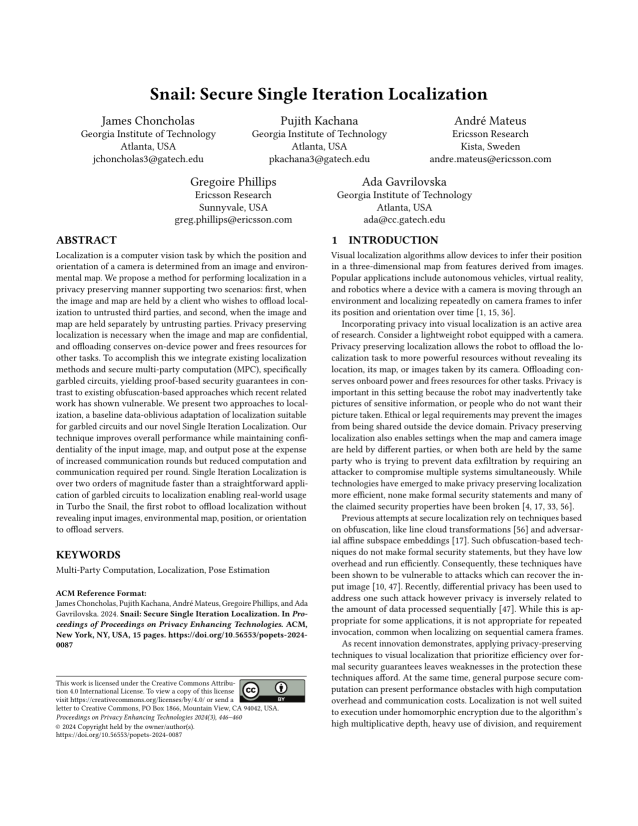Snail: Secure Single Iteration Localization
Authors: James Choncholas (Georgia Institute of Technology), Pujith Kachana (Georgia Institute of Technology), André Mateus (Ericsson Research), Gregoire Phillips (Ericsson Research), Ada Gavrilovska (Georgia Institute of Technology)
Volume: 2024
Issue: 3
Pages: 446–460
DOI: https://doi.org/10.56553/popets-2024-0087
Abstract: Localization is a computer vision task by which the position and orientation of a camera is determined from an image and environmental map. We propose a method for performing localization in a privacy preserving manner supporting two scenarios: first, when the image and map are held by a client who wishes to offload localization to untrusted third parties, and second, when the image and map are held separately by untrusting parties. Privacy preserving localization is necessary when the image and map are confidential, and offloading conserves on-device power and frees resources for other tasks. To accomplish this we integrate existing localization methods and secure multi-party computation (MPC), specifically garbled circuits, yielding proof-based security guarantees in contrast to existing obfuscation-based approaches which recent related work has shown vulnerable. We present two approaches to localization, a baseline data-oblivious adaptation of localization suitable for garbled circuits and our novel Single Iteration Localization. Our technique improves overall performance while maintaining confidentiality of the input image, map, and output pose at the expense of increased communication rounds but reduced computation and communication required per round. Single Iteration Localization is over two orders of magnitude faster than a straightforward application of garbled circuits to localization enabling real-world usage in Turbo the Snail, the first robot to offload localization without revealing input images, environmental map, position, or orientation to offload servers.
Keywords: Multi-Party Computation, Localization, Pose Estimation
Copyright in PoPETs articles are held by their authors. This article is published under a Creative Commons Attribution 4.0 license.

